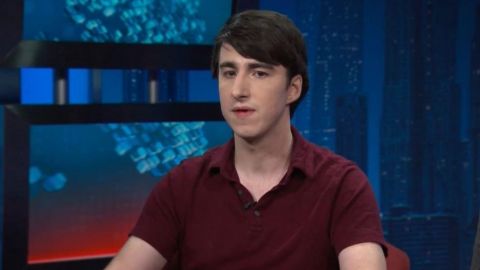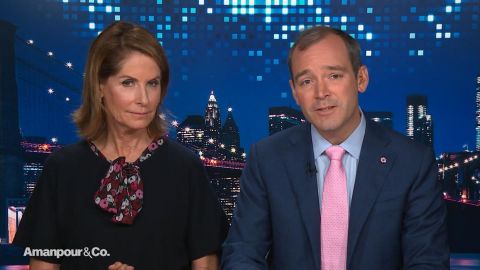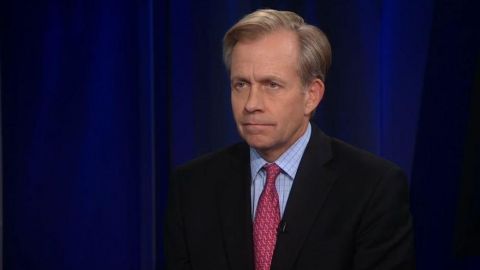Read Transcript EXPAND
CHRISTIANE AMANPOUR: You heard what we just reported about President Trump saying he hopes no one gets hurt. He hopes that all works out even for China. What is he trying to say? What needle is he trying to thread when it comes to the Hong Kong protests?
LEWIS LUKENS, FORMER ACTING U.S. AMBASSADOR TO THE U.K.: Well, I think what he`s trying to do is not agitate China and President Xi. I think he`s very keen to strike some kind of trade deal, certainly before next year`s election. And I think he`s very wary of crossing the line. I think former presidents and administrations might have been more outspoken on human rights and the protection of civilians in Hong Kong but the president, I think, is more focused on the transactional and the trade side of things clearly than on the human rights angle.
AMANPOUR: So, we heard that also from a young protester who we spoke to yesterday, Joshua Wong, and in a moment, I`ll play something that he told me about what he hopes from the United States. But the big worry, of course, is that China might do a Tiananmen 2.0. That`s what a lot of people worry. Other people say there is just no way. They`re aware now that the whole world is watching. Xi is not the leaders of 30 or 40 years ago. What do you think the U.S. should be saying to China even as President Trump is hoping for a trade deal?
LUKENS: Well, I think President Trump could hope for the trade deal and could also at the same time speak more strongly for — in support of human rights and the democratic right of the Hong Kong citizens to protest. That`s where I think he`s falling down a little bit. I think he feels it`s either one or the other, but I think he could do both and I think, you know, one can have trade negotiations with a country like China while at the same time standing up for values that you believe in as a country.
AMANPOUR: So, these are pictures of protests at the Hong Kong airport. And for a while, everybody was very, very anxious because busloads of police came down. They said they weren`t there to disperse the crowds and there was an injured passenger. In any event, they took him out and apparently, they then left. However, the standoff is still tense and the chief executive today, again, addressed this issue and talked about Chinese officials, particularly those with responsibility for Hong Kong. Just listen to what she said.
(BEGIN VIDEO CLIP)
CARRIE LAM, HONG KONG CHIEF EXECUTIVE: As we have all heard from the spokesman of the Hong Kong and Macau Affairs Office, the central government is still confident that I myself as the government of Hong Kong, SAR, together with the police force that we are still capable of resolving this crisis.
(END VIDEO CLIP)
AMANPOUR: So, that`s a pretty important statement from the chief executive. She is saying, “Back off, everybody. China is not sending its troops over the bridge,” or wherever they would send them, “and we can still control this.” How do you read the significance of what she just said?
LUKENS: Well, look, I mean, I think China has a clear interest in these protests not getting out of hand. And I think China is watching this very, very carefully and doesn`t want to give an example to citizens in China proper, not in Hong Kong but in China, to start demonstrating and protesting against the government. So, China — she may say they can handle this and they will handle it, but I think China is watching very closely and would not hesitate to send in troops
About This Episode EXPAND
Lewis Lukens joins Christiane Amanpour to discuss a thinning line between foreign policy decisions and trade. Hari Sreenivasan delves into the perils of technology and the alt-right with Caleb Cain and Kevin Roose. Perri Peltz and Matthew O’Neill speak to Amanpour about their new documentary, “Alternate Endings: Six New Ways to Die in America.”
LEARN MORE


